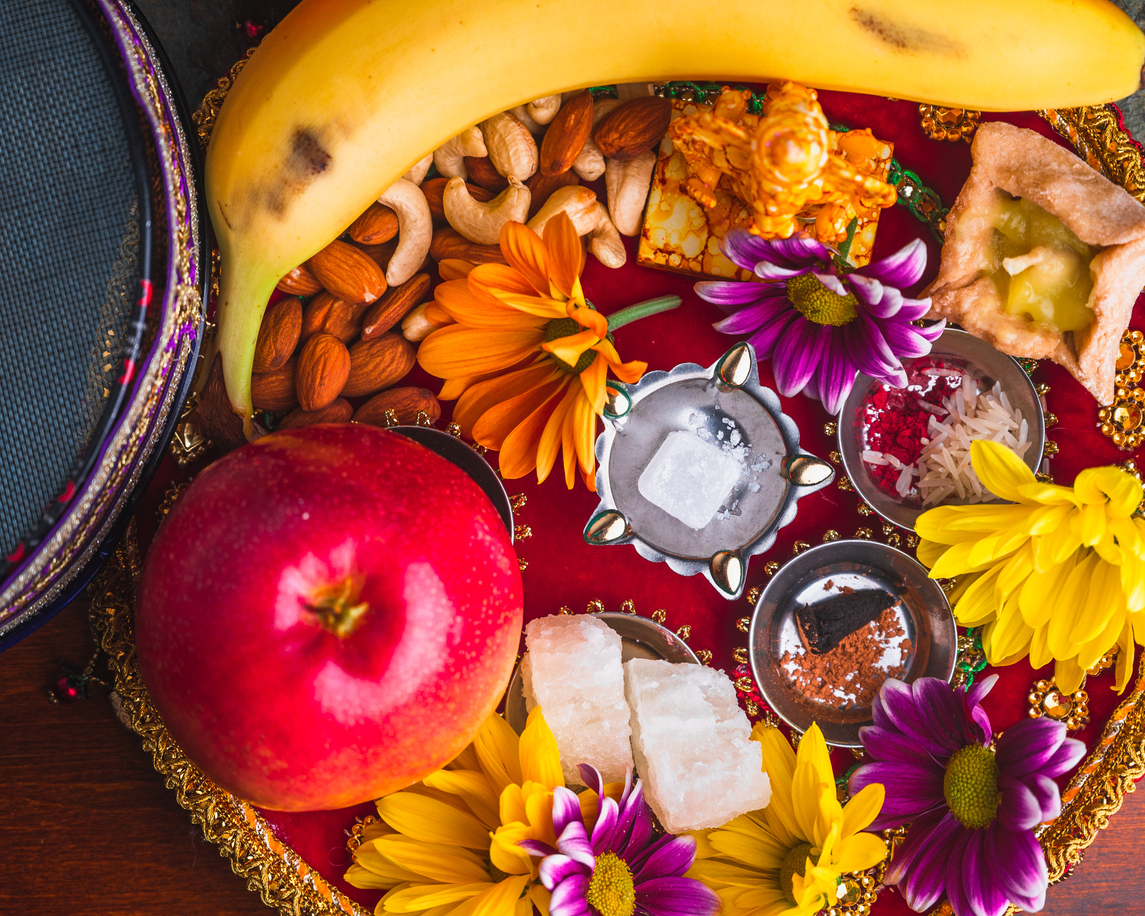Kajol questions Karwa Chauth traditions one day after posting DDLJ’s scene
In a recent interview, Kajol shares her thoughts on Karwa Chauth traditions, reflecting on her iconic role in 'Dilwale Dulhania Le Jayenge'.
Karwa Chauth fasting: It can be very difficult for some women, especially those fasting for the first time.

Photo: iStock
Karwa Chauth fasting: Karwa Chauth is a festival of belief and compassion. The day-long fasting that women observe for their husbands is a reflection of their true love and sacrifice. The emotion quotient of the festival extends beyond the couple as the morning ritual of sargi is performed between a mother-in-law and her daughter-in-law.
The fasting women are required to eat once before sunrise. The custom prohibits them from eating or drinking during the day. The fast can only be broken only in late evening, that too, after personally sighting the moon.
Advertisement
It can be very difficult for some women, especially those fasting for the first time. Since it is very important to take care of your health and make sure that the fasting does not cause any problem, you can follow these tips and make merry!
Advertisement
Focus on Sargi
Since you are not required to eat anything during the day and cannot even have water, sargi is the key for you to survive the day-long fasting. It is important that the early morning meal should consist of healthy and nutritious food. Also, the meal must have enough potential to support you through the day.
You can include oats and whole grain items in your sargi and prefer multi-grain roti or meusli which can help you sail through the day. Fruits also provide you with healthy nutrients.
You can even prepare a platter of mixed seasonal fruits. Avoid eating oily food in sargi as it might make you hungry soon after and avoid caffeine as it stimulates the process of excreting water thereby making you feel thirsty soon. Milk is a must in sargi.
During the day
If you have a sumptuous healthy sargi, you would easily sustain yourself for the next 4-5 hours of the day and not feel any discomfort. An important tip for fasting is to keep oneself busy throughout the day, which can help you avoid the thoughts of hunger or thirst.
It is important to avoid exerting tasks during the day. Do not exercise, or make drastic moves as it can make you feel parched and famished. It is important to note that our body has the tendency to survive 48 hours of hunger, but without water, it can be dehydrated soon.
Breaking the fast
Breaking the fast can be crucial for some women as their brain stops sending hunger signals and the body needs a kind of ‘jump-start’. Since the day-long fasting must have rendered you dehydrated, it is very important to have some plain water before you eat anything. It is also advisable to drink Oral Rehydration Solution (ORS) liquid which is very helpful in overcoming dehydration. After having water, wait for a few minutes before you have your meal.
Tips to make up for the lost nutrients:
– As your body runs low on glucose after the day-long fasting you need to have something sweet. While a piece of jaggery is preferable, you should avoid having sweets with complex sugar. But use caution against gorging-on to it, as you may feel the urge to overindulge because of low glucose level in your body.
– Have some nuts and flax seeds, pumpkin seeds or sunflower seeds, as these go easy on your digestive system and are a storehouse of nutrients, containing essential fats, with a good balance of protein and minimal carbs.
– After having nuts, drink a glass of water again to replenish the fluid requirements of the body.
– Avoid oily food completely as it would only leave you feeling heavy and tired. It is important to keep in mind that the digestive system was not used for several hours and you are required to go easy on it.
The next day is for work as usual, however, it’s advisable not to indulge in strenuous activities or heavy exercise. Give your body the required compassion and it will give you back the love.
Happy Karva Chauth once again!
Advertisement